Abstract
An egg yolk-polymyxin medium (KG) for rapid enumeration of Bacillus cereus is described. The test is presumptive in that differentiation of B. cereus (and closely related organisms) from other species is based on the formation of turbidity in the agar surrounding the colonies of the cereus group organisms. The medium is formulated to encourage sporulation and release of free spores for serological confirmatory tests within the 24-hr incubation period. The production of turbidity in egg yolk and free-spore production by 25 strains of B. cereus on KG agar were measured. The recovery of food poisoning strains of B. cereus inoculated into nonsterile food slurries was assessed. A comparison of KG agar and mannitol-egg yolk-polymyxin-agar indicated that the two media were comparable in their abilities to recover low levels of B. cereus from naturally contaminated foods. Since KG agar enhances spore formation by B. cereus, thus permitting early serological testing, its use in screening food products is advocated.
Full text
PDF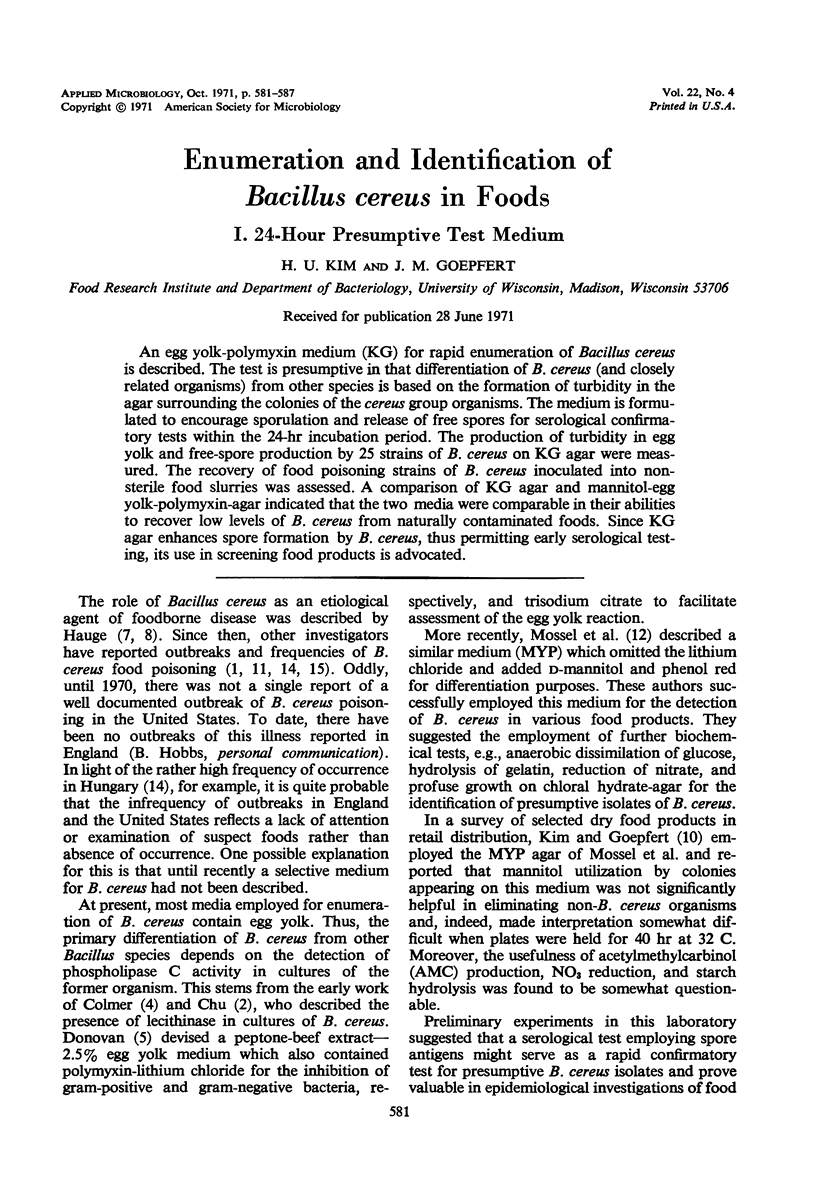
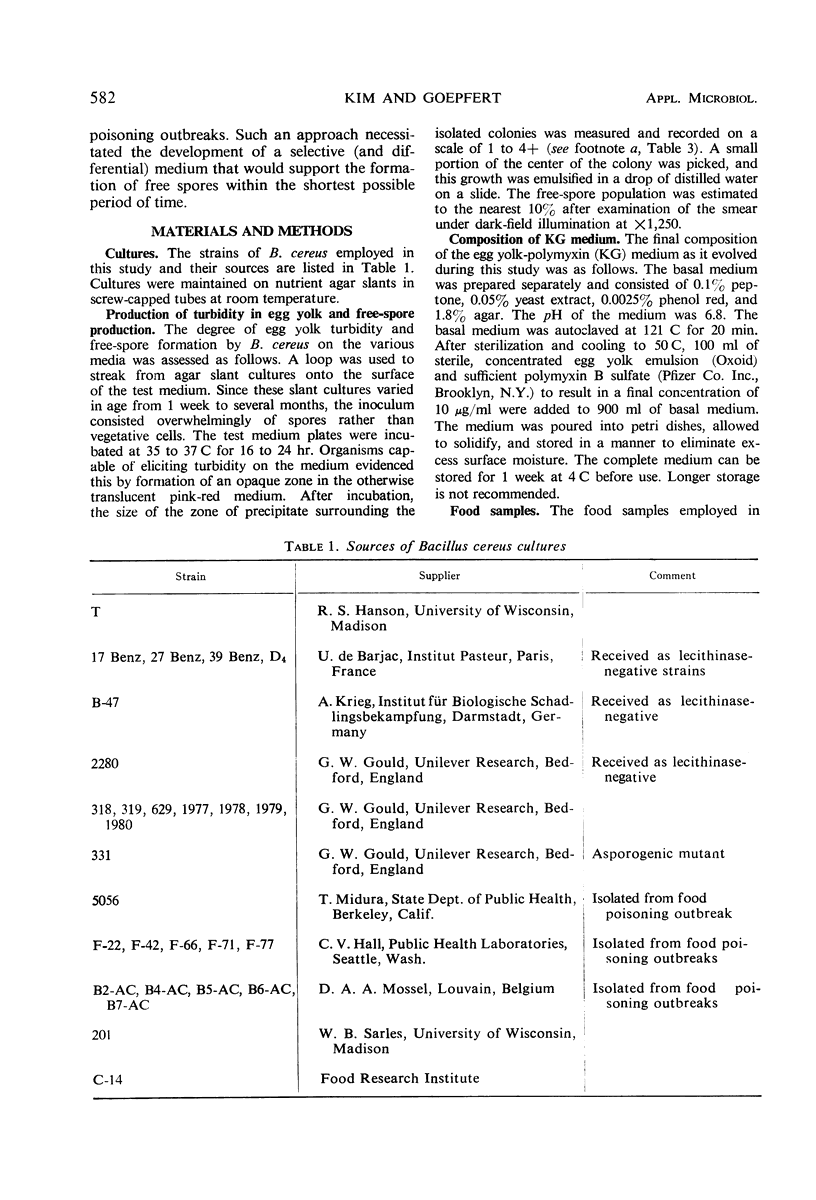
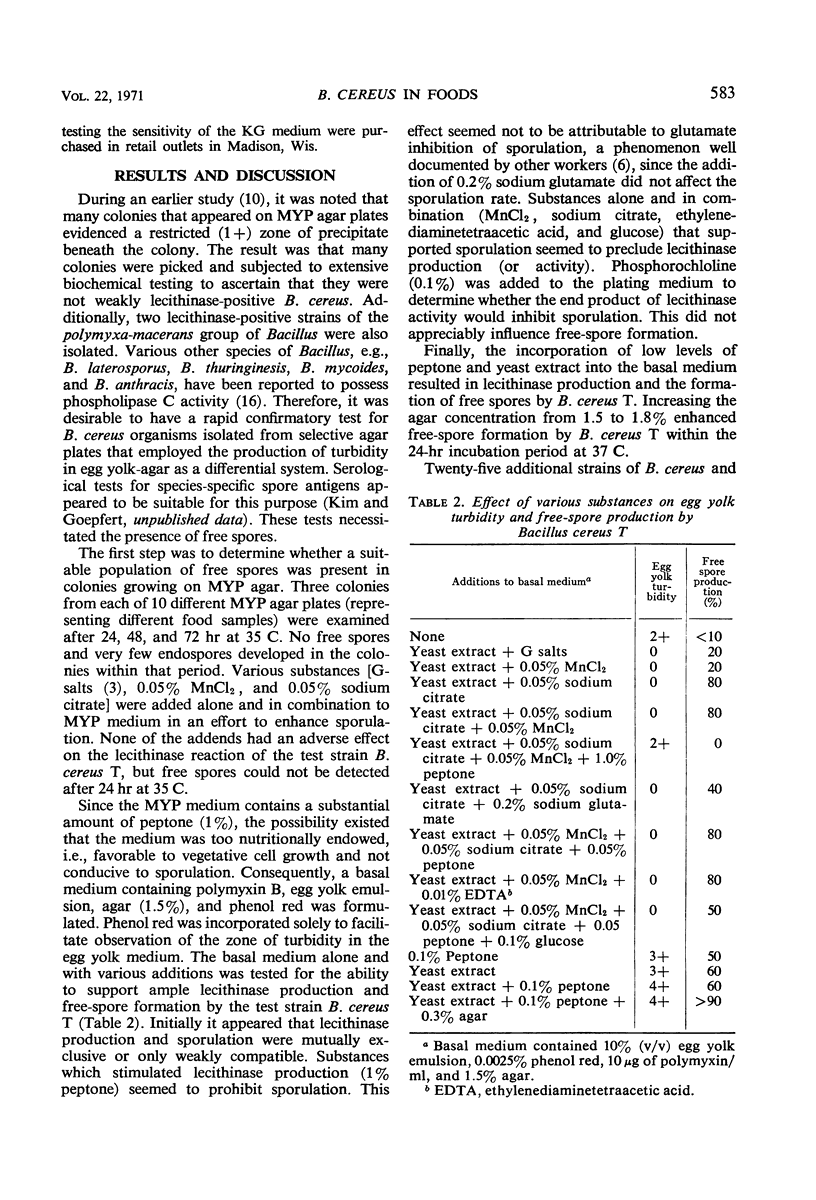
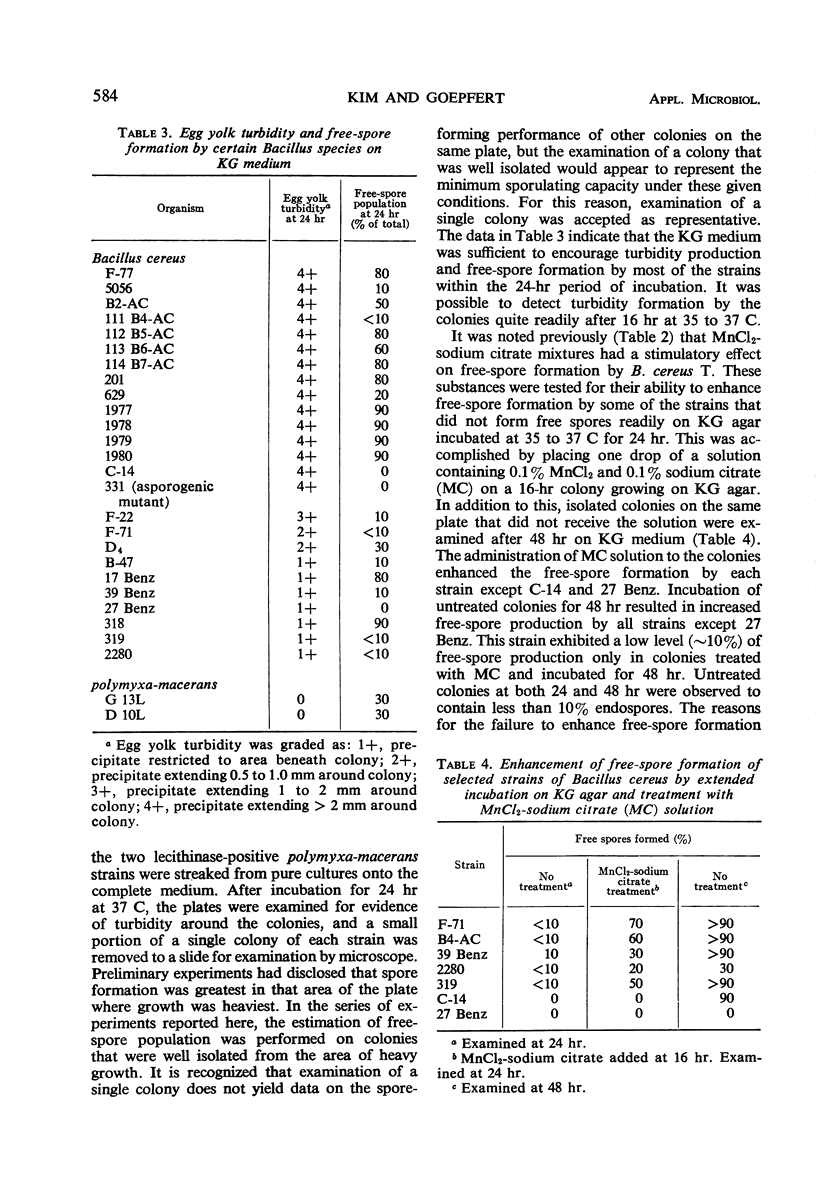
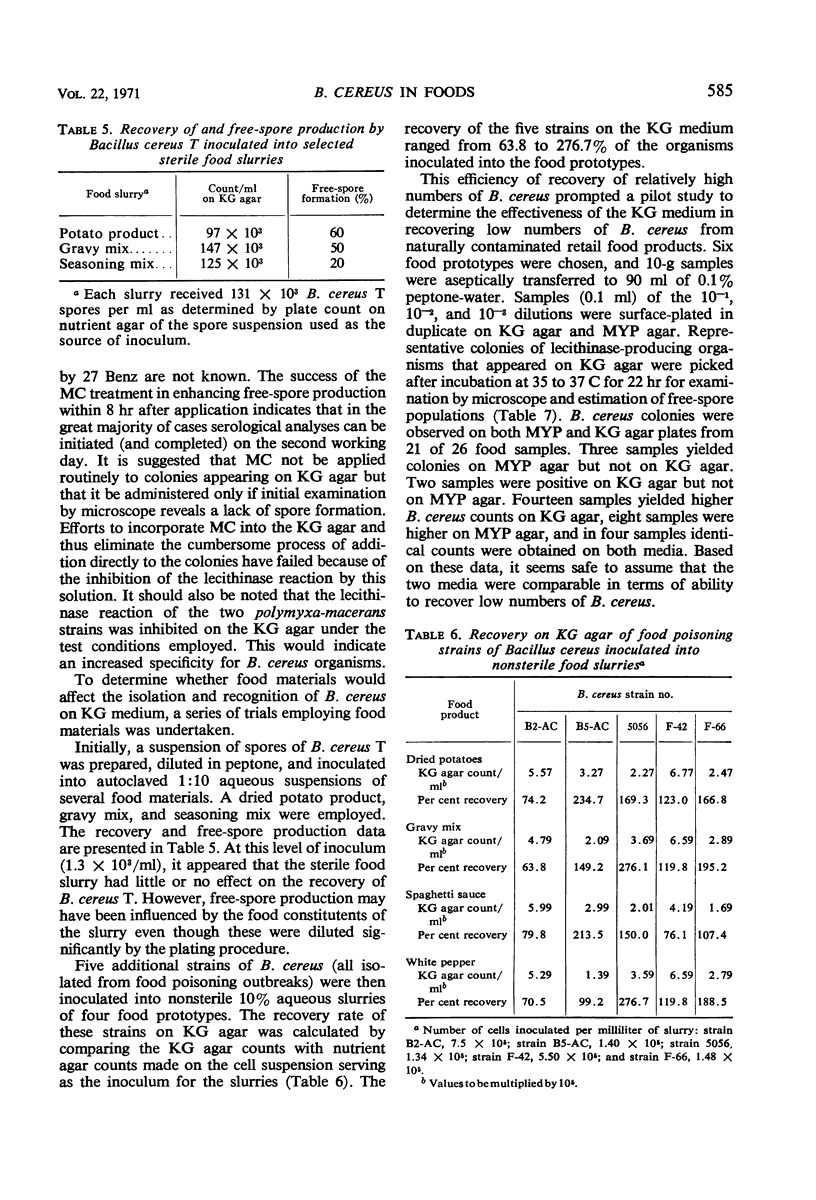
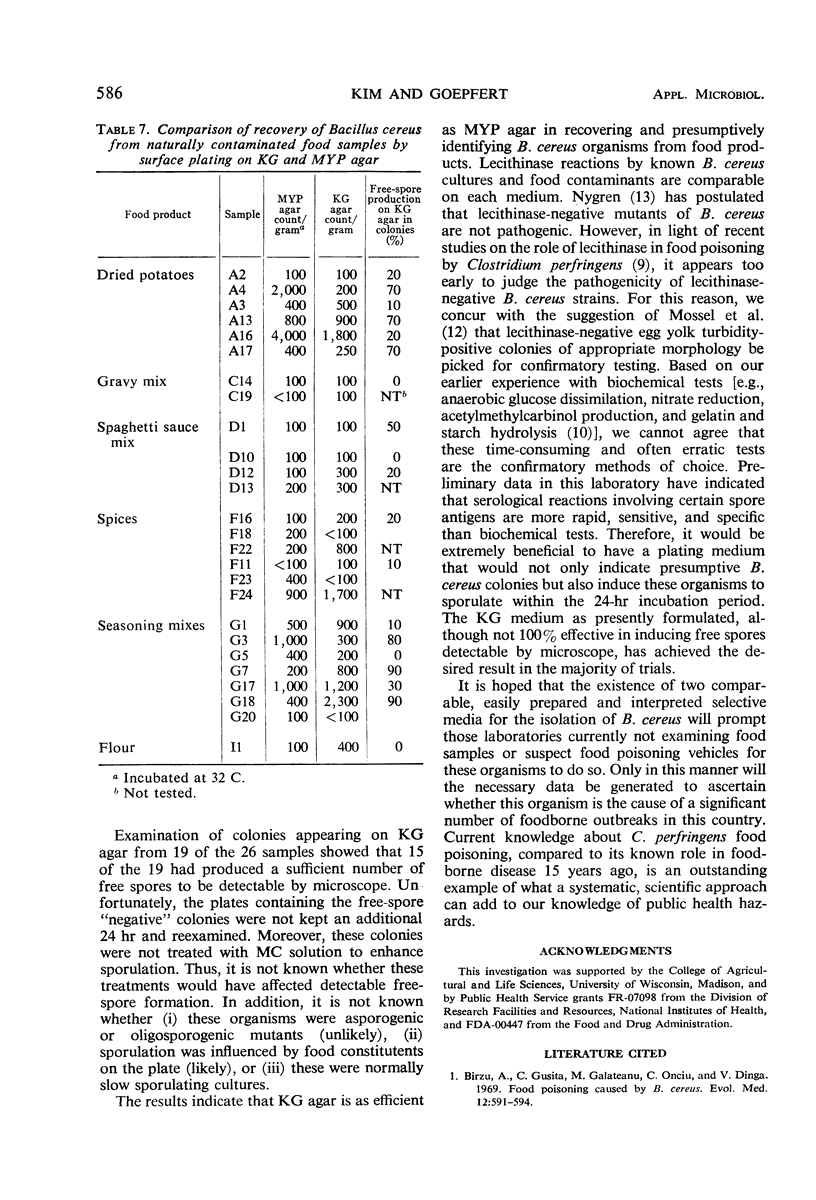
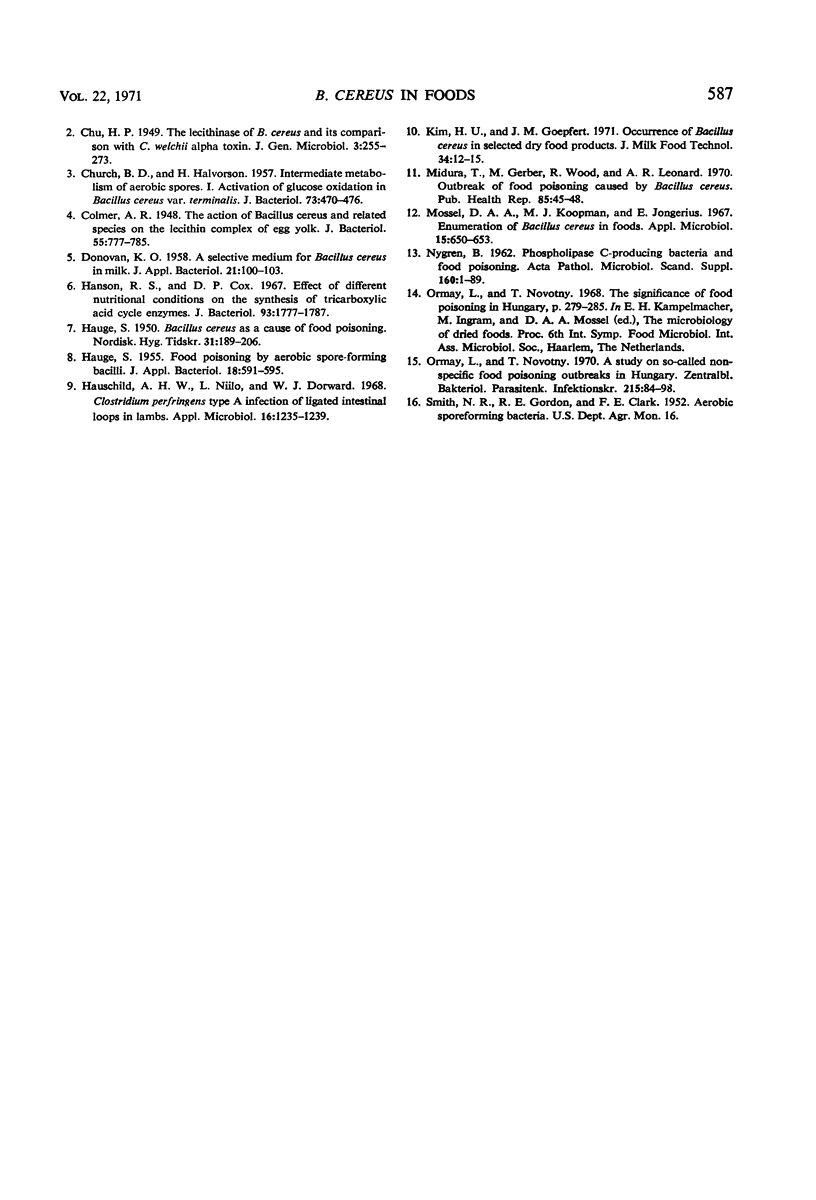
Selected References
These references are in PubMed. This may not be the complete list of references from this article.
- CHURCH B. D., HALVORSON H. Intermediate metabolism of aerobic spores. I. Activation of glucose oxidation in spores of Bacillus cereus var terminalis. J Bacteriol. 1957 Apr;73(4):470–476. doi: 10.1128/jb.73.4.470-476.1957. [DOI] [PMC free article] [PubMed] [Google Scholar]
- Colmer A. R. The Action of Bacillus cereus and Related Species on the Lecithin Complex of Egg Yolk. J Bacteriol. 1948 Jun;55(6):777–785. doi: 10.1128/jb.55.6.777-785.1948. [DOI] [PMC free article] [PubMed] [Google Scholar]
- Hanson R. S., Cox D. P. Effect of different nutritional conditions on the synthesis of tricarboxylic acid cycle enzymes. J Bacteriol. 1967 Jun;93(6):1777–1787. doi: 10.1128/jb.93.6.1777-1787.1967. [DOI] [PMC free article] [PubMed] [Google Scholar]
- Hauschild A. H., Niilo L., Dorward W. J. Clostridium perfringens type A infection of ligated intestinal loops in lambs. Appl Microbiol. 1968 Aug;16(8):1235–1239. doi: 10.1128/am.16.8.1235-1239.1968. [DOI] [PMC free article] [PubMed] [Google Scholar]
- Midura T., Gerber M., Wood R., Leonard A. R. Outbreak of food poisoning caused by Bacillus cereus. Public Health Rep. 1970 Jan;85(1):45–48. [PMC free article] [PubMed] [Google Scholar]
- Mossel D. A., Koopman M. J., Jongerius E. Enumeration of Bacillus cereus in foods. Appl Microbiol. 1967 May;15(3):650–653. doi: 10.1128/am.15.3.650-653.1967. [DOI] [PMC free article] [PubMed] [Google Scholar]
- NYGREN B. Phospholipase C-producing bacteria and food poisoning. An experimental study on Clostridium perfringens and Bacillus cereus. Acta Pathol Microbiol Scand Suppl. 1962;Suppl 160:1–88. [PubMed] [Google Scholar]
- Ormay L., Novotny T. Uber sogenannte unspezifische Lebensmittelvergiftungen in Ungarn. Zentralbl Bakteriol Orig. 1970;215(1):84–89. [PubMed] [Google Scholar]


